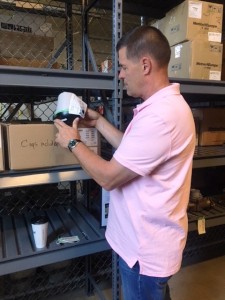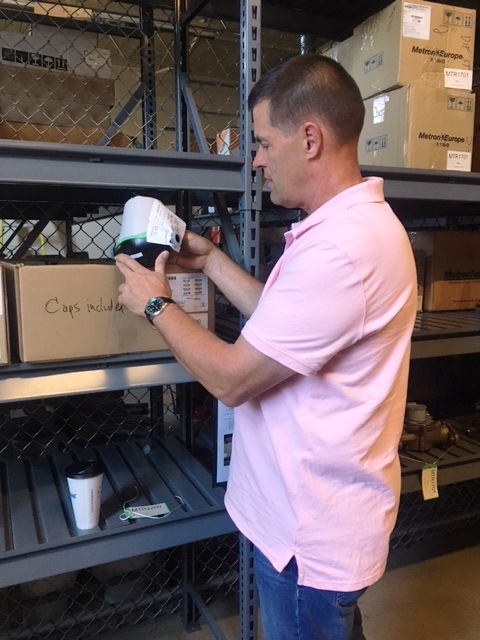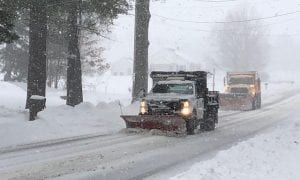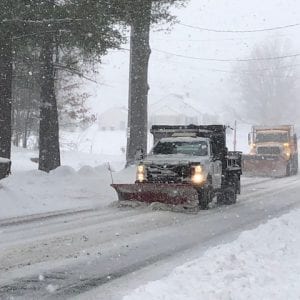WESTFIELD—The city is seeking bids to complete the installation of new water meters at residences across Westfield.
The installation of the new water meters is part of a replacement project of older ones in the city, and bond money is available for this part of the project. Bids are due by March 6 at 2 p.m., with installations to be completed within about a year of the winning bid’s acceptance, according to Director of the Department of Public Works Dave Billips.

Francis Cain, Assistant Director of Public Works, inspects one of the new iPERL water meters. (Submitted photo, WNG archive, Sept. 2016)
“The meters that are in are original meters from when they first started metering in the 90s and they long outlived their life expectancy,” Billips said. “And many of them are inaccurate.”
According to Billips, the project will be funded through $1.5 million in bond money. It will include the installation of meters for the more than 11,000 customers in the city, with the purchasing of some additional meters. However, Billips said, the city has already received “most of the meters.”
The installation will occur where current water meters are located at homes, and some old meters have been replaced already, according to Billips.
The new water meters, called iPERL meters, will transmit information automatically to the Water Department in a near-real time format, with the information coming through two radio towers that are expected to be installed in two areas of the city.
One of the towers, which will be on Provin Mountain, is already being installed as part of another city project, while a second one is expected to be installed in the spring, tentatively on West Road.
According to Billips, the installation and implementation of these new meters will “be beneficial for everyone” in the city, and he claims the savings could pay for the bond over time.
“We have about an average of 16 percent unaccounted-for water, which averages out to be about 300 million gallons a year,” Billips said, “and that’s water we have to pay to produce, so the savings should cover the cost for the bond.”
Billips said that in 2015, the last year the city generated the cost of lost water, the total value of the loss was about $200,000.
The loss, he added, could come from a number of areas, including leaks, inaccurate meters, as well as theft, and that these issues could potentially be addressed through the new meter system.
Additional savings, Billips claimed, could include $150,000 in meter readings a year.
The total savings estimated from the new system is about $365,000.







